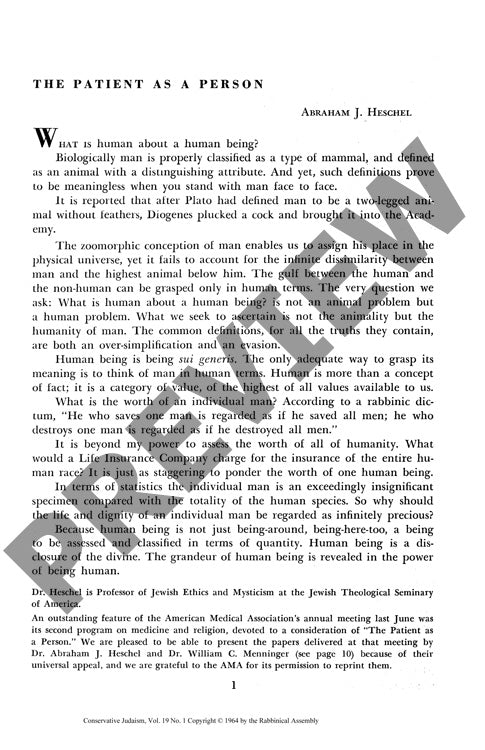The Patient as a Person
Couldn't load pickup availability
This philosophical examination explores the fundamental nature of human personhood within medical practice, challenging reductionist approaches that define patients merely as biological entities. Heschel employs phenomenological analysis and theological reflection to articulate what distinguishes human beings from other animals, arguing that humanity transcends simple biological classification. The methodology combines rabbinic wisdom, philosophical inquiry, and critical analysis of contemporary medical practice to demonstrate that human worth derives from divine disclosure rather than statistical significance. Key findings reveal that authentic personhood manifests through concern for others, capacity for transformation, and boundless inner potential for development. The study identifies concerning trends toward dehumanization in modern medicine, where technological advancement threatens to reduce doctor-patient relationships to mechanistic interactions. Heschel contends that effective healing requires recognition of patients as complete persons whose physical, spiritual, and emotional dimensions are inseparably integrated. The analysis reveals that medical practice constitutes a sacred calling requiring prophetic commitment to human dignity rather than mere technical expertise. The author concludes that medicine and religion share unified purpose in serving human flourishing, with physicians serving as partners with the divine in the fundamental struggle between life and death. The work emphasizes that maintaining medicine's nobility requires conscious resistance to commercialization while cultivating reverence for the profound mystery of human existence.

More Information
-
Physical Description
-
Publication Information
Published 1964
ISBN
-
Publication Credits
Abraham Heschel

